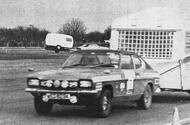Why Did Caravans and Camper Vans Become So Popular in Britain?
If you grew up in Britain during the 1960s or 1970s, chances are you have at least one story involving a caravan or camper van. Maybe it’s a memory of rain pattering on the roof while you played cards inside, or the slightly musty smell of a well-traveled van packed with holiday gear. But have you ever wondered why these vehicles became such a fixture of British life?
The answer lies in a mix of social change and economic opportunity. After World War II, Britain was rebuilding, and for many families, the idea of a foreign holiday was out of reach. Cheap flights were still a distant dream. So, what did people do? They hitched up a caravan or loaded into a camper van and headed for the countryside. It was freedom on four wheels—an affordable way to escape the daily grind.
Car ownership was booming, too. According to the National Caravan Council, only about 3,000 caravans were built in the UK each year during the 1950s. By 1972, that number had skyrocketed to 67,000. Suddenly, the open road was accessible to the average family, not just the wealthy. The Caravan Club, founded way back in 1907, saw its membership swell as people embraced this new way to travel.
What Made British Caravans and Camper Vans Stand Out?
You might think a caravan is just a box on wheels, but the British industry quickly became a world leader in design and innovation. By the late 1950s, the caravan sector had grown so large it warranted its own exhibition at Earl’s Court in London. Dozens of manufacturers—names like Astral, Eccles, Lynton, and Sprite—showcased models that blended practicality with surprising comfort.
What set British caravans apart was their adaptability. Post-war austerity meant families wanted value for money, but they also craved a bit of luxury. Manufacturers responded with clever layouts, lightweight materials, and features that made life on the road easier. Camper vans, meanwhile, offered a different kind of freedom: no speed restrictions, easier handling, and the ability to park up just about anywhere. The Volkswagen Type 2, Ford Transit, and Bedford CA became icons of the era, beloved for their reliability and charm.
How Did Caravanning Become a Competitive Sport?
It wasn’t just about leisurely holidays. For some, caravanning turned into a full-blown sport. The British Caravan Road Rally, established in the late 1950s, put drivers and their rigs through a series of challenges: hill climbs, fast towing, braking tests, and even distance judgment. There was even a tongue-in-cheek concours d’elegance, where the shiniest and most stylish setups vied for bragging rights.
Things got even wilder in the 1970s, when caravan racing made its debut at Silverstone. Imagine a Ford Mustang and a Volvo 131, each towing a caravan, battling it out on a race track at nearly 60 mph. It sounds mad—and it was—but it captured the public’s imagination and cemented the caravan’s place in British motoring folklore.
What Challenges Did Caravanners Face?
Of course, not everyone was a fan. Some saw caravans as road-clogging nuisances. In 1971, journalist David Phipps famously grumbled that three weeks in a caravan was “grounds for divorce.” Yet even skeptics found themselves won over by the practicality and fun of caravan holidays, especially when traveling with kids.
There were mishaps, too. Take the story of racer Brian Redman, whose European caravan adventure ended with the caravan body coming off its chassis and a VW up a tree after swerving to avoid the chaos. The aftermath? A night in a hotel with the very people whose car had crashed, and a lesson in the unpredictability of life on the road.
How Did the Industry Change Over Time?
The golden age of caravans and camper vans didn’t last forever. By the mid-1970s, new taxes pushed up prices by around 10 percent, putting a damper on sales. Camper vans, once prized for their simplicity, began to fall out of favor as families demanded more space and amenities. Still, the legacy of this era lives on. Modern caravans are marvels of comfort and technology, but they owe much to the innovations—and adventures—of those early pioneers.
What Can Today’s Travelers Learn from the Caravan Craze?
If there’s one takeaway from Britain’s love affair with caravans and camper vans, it’s that adventure doesn’t have to mean flying halfway around the world. Sometimes, the best memories are made a little closer to home, with a sense of curiosity and a willingness to embrace the unexpected.
Whether you’re a lifelong caravanner or just curious about this quirky slice of British history, there’s something undeniably charming about the idea of packing up, hitting the road, and seeing where the journey takes you. After all, it’s not rocket science—just start small, and let the adventure unfold.

